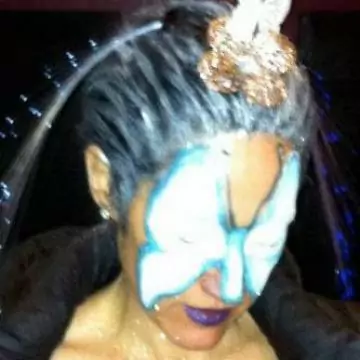We're in pioneering times. Vestibular issues aren't well understood. Don't let doctors who don't understand your symptoms define your path to health or your self-esteem. Be your best friend, your best advocate. Keep on reaching out to local support groups, therapists, and doctors who are on the same path. If we can't improve our vestibular issues for now, we can grow in other ways with help and inspiration from others. We're never alone when we reach out.

Over three years ago I went in for a very routine optional sinus surgery. I woke up with a splitting headache, my ears ringing, confused, nauseous and emotional. What had happened to me? The surgeon insisted nothing and told me not to come back to him but go to my GP if the symptoms continued.
I didn’t recognize people I’d known for years who called on the phone, I couldn’t remember when my husband had told me he loved me the first time. Shopping in large, crowded stores went from a delight to a nauseating experience. Bright light, loud sound and frenetic motion bothered me. I couldn’t watch much TV or read for long. For someone whose job was highly complex, I was now confused carrying numbers from column to column. I often couldn’t find simple words, my speech sounded a bit robotic.
The merry-go-round of doctor visits began. My sympathetic but puzzled GP sent me to speech therapists and physical therapists who were baffled by how I had come out of surgery acting like I had a brain stem injury. Eyes, ears, brain scans all looked physically fine. Two neurologists said ‘nothing is wrong with you’. A physiatrist was sympathetic but wrote in my notes (I read later — always read your notes!) I shouldn’t be seen by any more ‘medical’ doctors — luckily for me most of them ignored her.
I finally read an article in a Portland Monthly hiking insert about Dr. Ashley Wackym and a patient that sounded vaguely like me. He accepted me as a patient and I waited six months to see him. Once I met him he listed a set of symptoms (mine!) in a way that told me he understood this as a recognizable disorder and asked if doctors had insinuated I was making things up. For the first time in a doctor’s office I cried, in relief — he understood.
We’ll never know what happened to me in surgery for sure since my surgery was in a private surgical center without an objective witness beyond the owner/surgeon and his team, but Dr. Wackym and his audiologist said patients in surgery can choke on intubation tubes and a shot of air can go up into the ear and rupture a part of the ear, perhaps a part of the ear that was always vulnerable from birth or the shot of air from a convulsion was just that strong. That they have many patients who were injured that way.
Dr. Wackym *did* find issues with my ear through audio and balance testing. I had a ruptured round window — a perilymph fistula. I asked why others didn’t catch this on their machines and he said his equipment was set to capture more types of data. He gave me a non-surgical option to try to heal my perilymph fistula on its own. It turns out this medical condition itself is controversial, some medical doctors are taught it can’t exist. One reason is because the parts are so small these ruptures can’t be seen. (This is true for concussions as well, most of them can’t be imaged even while changing people’s ability to function.) Imaging technology is still being refined and has a ways to go. They’re working on it now and we as patients are part of this pioneering effort today.
Today I’m still healing. Despite being told my eyes were fine early on by a neuro-opthalmologist who determined they were structurally sound, my cognitive therapist insisted they were ‘off’ and sent me to Dr. Bruce at Northwest EyeCare Professionals, where he discovered the symptoms of post-concussion syndrome (if I was in convulsions, did I hit my head hard too?). My eyes were structurally sound but not working together, having lost the ear as a well functioning companion. The ear, which has a nerve for balance as well as hearing, and the eye work together to determine where the body is in space. If one of them is off, the brain tries to get the other to compensate and it becomes ‘off’ too. I’ve been working to re-align my vision so my eyes converge properly again. This has helped me feel more balanced and regain energy for tasks other than just standing upright and moving forward! Something that my brain has had to prioritize since the injury, while deprioritizing other tasks like memory and other cognitive function.
It’s taken three years, but with the help of pioneering doctors and therapists — as well as a determination to move forward in the face of doctors who didn’t have answers or tried to make me the problem when they didn’t have answers — my life has improved enormously.
VeDA is a much needed organization. We’re not well understood, even within the medical community — yet. We need to band together with other patients, and allied professionals to help spread the word of what vestibular medical problems are, how to look for them, what answers exist, and who to send patients to for help.